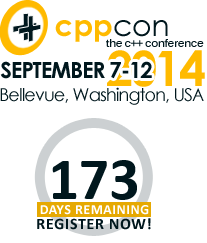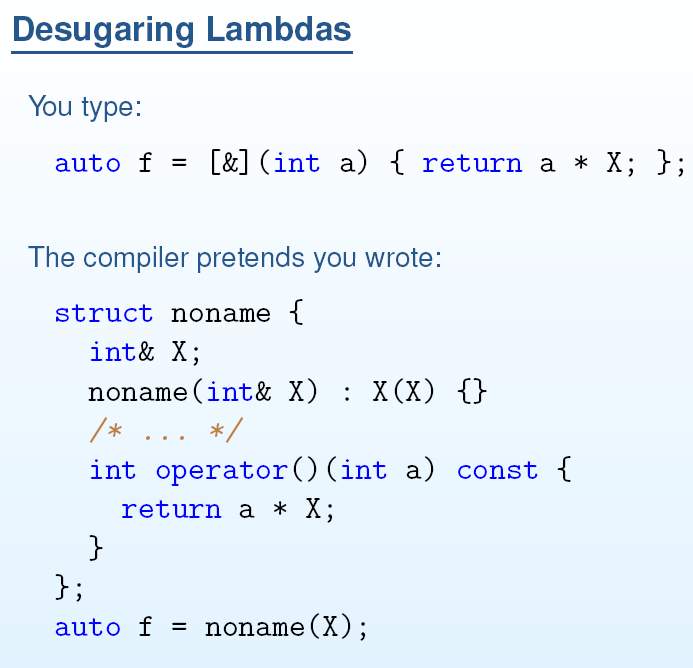C++11/14 Standard & Standardization--Peter Sommerlad
Peter Sommerlad on C++11 and C++14 Standard(s) and Standardization:
Peter Sommerlad on C++11 and C++14 Standard(s) and Standardization
Created by Peter Sommerlad March 6, 2014
From the presentation:
Why is C++ in again?
• more computing per Watt!
• mobile - battery powered
• servers - cloud computing
• high-performance computing & GPUs
• better abstractions than C
• without performance price (e.g. of a VM)
• embedded (higher-level type safety)
• security (buffer overruns, pointers)

 Scott Meyers' work on his new "Effective C++" book, tentatively titled Effective Modern C++, progresses with an updated draft table of contents and sample Item available:
Scott Meyers' work on his new "Effective C++" book, tentatively titled Effective Modern C++, progresses with an updated draft table of contents and sample Item available: Today from the desk of Andrzej:
Today from the desk of Andrzej:

 Update: The EE Live! organizers have announced that they are able to expand the room for Stroustrup & Sutter on C++, and so seats are still available for Bjarne Stroustrup's and Herb Sutter's
Update: The EE Live! organizers have announced that they are able to expand the room for Stroustrup & Sutter on C++, and so seats are still available for Bjarne Stroustrup's and Herb Sutter's  A rapid-fire "now write this using lambdas" problem-solution drill with Sumant Tambe:
A rapid-fire "now write this using lambdas" problem-solution drill with Sumant Tambe: A fun(ctional) talk from QCon:
A fun(ctional) talk from QCon: